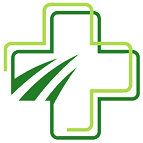More than 13% of individuals aged between 18 and 29 and about 8% of all adults in the US experience bruxism. Bruxism is a medical condition in which the affected person clenches, gnashes, and grinds their teeth against each other. While the condition can affect adults and children alike, remedial actions are essential as it can lead to severe health consequences.
You can visit a Dental clinic Memphis, TN, to seek a permanent solution for bruxism. Dentists use different techniques and devices to help you eliminate symptoms like grinding and gnashing. It is pertinent to mention that you must not ignore the symptoms of bruxism.
What is bruxism, and what causes it?
If you have bruxism, you may find yourself unconsciously grinding, gnashing, or clenching your teeth. It can happen either when you are awake or even when you are asleep. Sleep bruxism is also regarded as a sleep-related movement disorder, which can even lead to other sleep disorders like sleep apnea.
However, it is prudent to mention that doctors don’t fully understand what leads to a condition like bruxism. It is thought to be caused by various psychological, physical, and genetic factors. Doctors give the following two theories.
- Awake bruxism is triggered due to emotions like anger, stress, anxiety, tension, or frustration. Some also suggest that it can be a coping strategy or a mechanism for deep concentration in some individuals.
- As for sleep bruxism, doctors believe that it is associated with a feeling of arousal or temptation during sleep.
Other risks of bruxism
Apart from the above, there are several risk factors for bruxism. Some of the most common ones are as follows.
- Anxiety and depression-related disorders, like generalized anxiety disorders (GAD) or major depressive disorder (MDD), increase the risk of bruxism, and feeling overwhelmed and stressed can lead to symptoms like grinding and clenching.
- Individuals who consume a lot of alcohol, caffeine, and cigarettes are also more likely to grind their teeth than those who don’t.
- Some anti-anxiety drugs, like selective serotonin reuptake inhibitors or SSRIs, are also known to cause bruxism.
- Doctors have also observed that bruxism is more common in individuals affected by sleep apnea. However, it is difficult to tell if bruxism is caused due to sleep apnea or the other way around.
Common symptoms of bruxism
The following are the most common symptoms of bruxism.
- Loud clenching or grinding of the teeth is the classic sign of bruxism.
- Bruxism can flatten, lose, fracture, or chip your teeth.
- Bruxism can lead to tooth enamel wearing, exposing the deeper layers of your tooth.
- Bruxism can lead to sensitivity or pain in the teeth.
- Tightened, tired, or locked jaw muscles that won’t allow your jaw to open or close completely.
- Soreness or pain in the neck, jaw, or face.
- Dull headache and sleep disruption.
How to treat bruxism?
Following are some ways to treat bruxism.
- Cutting down on substances like caffeine, alcohol, tobacco, etc., can help prevent grinding your teeth.
- Mediation or consulting with a therapist to reduce stress and anxiety can also help, as more than half of the cases of bruxism are related to stress and anxiety.
- Practice jaw exercises like stretching and massaging and applying hot packs to relax jaw muscles.
- Use muscle relaxants so your jaw muscles can relax while you sleep and your teeth do not grind.
- In severe cases of bruxism, botox injections can weaken the jaw muscles and prevent jaw clenching and teeth grinding.
- However, the best thing to do is consult a dentist as soon as you recognize the symptoms of bruxism. A dentist can help you with splints and mouth guards to create a barrier between lower and upper teeth to prevent grinding.
It is important to note that bruxism should not be taken lightly. It can lead to several dental and other health issues, so you must consult a dentist as soon as possible.


